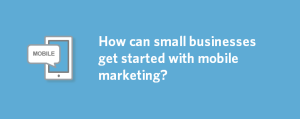When we launched our first company in 2001, we needed a server that cost several thousand dollars, expensive software, phone systems, workstations, and fax machines. And that was just to get started — scaling was even pricier.
But thanks to technological advancements and the emergence of the software-as-a-service economy, starting a company is less costly than ever. As we develop and scale our latest venture, we can spin up our servers in the cloud in a matter of minutes and with no upfront cost. Almost everything we use is pay-as-you-go — from phone numbers and email to software and even payroll systems.
Being an entrepreneur is not a low-cost venture by any means, but with an abundance of products and services being offered as subscription services instead of an upfront fee, it’s more affordable than ever to get the tools needed to manage your company. Here are some areas in which this technological evolution can benefit your brand-new business:
· Software: Software costs add up quickly, but in the past few years, software has migrated to SaaS. Because so many software companies now operate in the cloud, you no longer need to run to the nearest computer store to purchase a pricey software installation disc when you know your team will only use it once.
At Truebill, we use several SaaS products. Our customer support team uses Fieldbook and Gmail to stay on top of customer requests. Our product team uses Moqups to generate wireframes for new features. And the design team lives in Sketch and Adobe Illustrator to bring those wireframes to life.
For whatever software you need to grow a business, you can probably find a SaaS option that will get you working right away.
· Web hosting: Did you know that there was a time when you needed an actual physical server if you wanted a web presence?
Now, servers can be spun up in minutes with cloud-computing services like Amazon Web Services and Heroku. Not only is the setup time almost instant, but these options are also significantly cheaper (and more secure) than buying dedicated servers for your business.
If you don’t need a robust digital presence, sites like Squarespace and Webs.com let you build and launch a professional-looking website for an affordable price. And they can save you a load of headaches that traditionally come with hosting your own site.
· Business planning and administration: There’s no need to reinvent the wheel when it comes to creating your business plan or handling accounts payable, accounts receivable, and payroll. There are plenty of options out there that are easy to use and can fit into your workflow.
Bizplan, for example, creates tools and services to help you form your business plan to get you closer to your initial funding stages. And for the day-to-day business operations, we use Gusto for payroll and insurance and inDinero for bookkeeping.
· Documentation: Online signature tools like HelloSign or Adobe Sign speed up turnaround time for getting contracts signed.
We just raised funding, and it was hard enough to track down investors for a meeting, let alone a signature. Using these services made getting the final contracts signed an incredibly straightforward process. They automatically send reminders and save you the annoyance of needing to print, scan, download, and track people down.
· Split-testing software: Losing potential customers because you’re using the wrong messaging is extremely costly. Split-testing software like Optimizely, Unbounce, and Google Analytics’ Content Experiments allows even novices to test different designs and messaging to see what appeals to the largest portion of their audiences.
It’s not uncommon to see small changes affect conversion rates by 10 to 20 percent. While you might think your site was perfect from the get-go, there’s no replacement for the actual data these tools provide.
Starting a business is never easy — in fact, it’s very difficult! But thanks to the development of the SaaS economy, at least it doesn’t need to be costly. With a little searching, you can find free — or near free — trials for most of the services you’ll need to get your business off the ground. And from there, most services offer pricing that scales as you grow, meaning your costs should never outpace your growth.
Business & Finance Articles on Business 2 Community(25)





